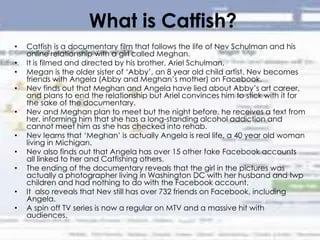In the ever-evolving landscape of the job market, a curious and controversial trend has emerged, coined ‘career catfishing.’ This phrase refers to the increasingly common behavior among Gen Z—that is, accepting job offers only to vanish without a trace, leaving employers puzzled and frustrated. This article delves into the roots of this phenomenon, exploring its implications for both job seekers and employers while shedding light on the nuances of this modern-day labor market drama.
As Gen Z navigates the complexities of finding work, they often find themselves face-to-face with the notorious practice of ghosting from hiring managers. With a staggering 1 in 3 Gen Zers accepting jobs and never showing up, it raises an essential question: What are the motivations behind this new workplace trend? Are they simply acting out against a system that often leaves them hanging? Far from mere disappearances, these actions reflect a range of underlying issues spurred by unresponsive corporate hiring practices, leading to the rise of an intriguing pushback.
The Rise of Career Catfishing: Understanding the Trend
Career catfishing is best understood within the context of the labor landscape shaped by the pandemic and growing disillusionment toward traditional hiring practices. With the pandemic resulting in unprecedented job loss and economic uncertainty, many recent graduates found themselves applying to numerous positions only to face prolonged silence or, even worse, multiple rounds of interviews without a clear outcome.
This silence, coupled with the pressure to secure jobs in an increasingly competitive market, has left many Gen Z candidates feeling undervalued. They take matters into their own hands by engaging in career catfishing as a form of rebellion against companies that ghost them. It’s a cat-and-mouse game where organizations, often unresponsive and disconnected, become victims of their own poor outreach, leading individuals to reclaim their time and energy.

Defining Career Catfishing
Career catfishing refers to the act of accepting a job offer and failing to show up for work, often without notifying the employer. This can be seen as a retaliatory measure against the frustration of ghosting hiring practices. The motivations behind the rise of career catfishing are complex and multifaceted. This section will unpack the term, providing essential context regarding its emergence.
1. Frustration with Unresponsive Employers: The primary catalyst for career catfishing stems from previous encounters with potential employers who fail to follow through. Many Gen Z candidates report applying for jobs and never receiving feedback, leading them to feel undervalued.
2. Desire for Value: In a world where talent is often lost in the shuffle, Gen Z seeks to assert their worth. By engaging in this act, they make a statement that they will no longer accept jobs from companies that do not value their contributions.
3. A Growing Trend against Traditional Practices: This behavior signals a rebellion against outdated hiring practices. As companies increasingly rely on automated processes and fail to foster connections with potential hires, Gen Z responds by taking back control.
In essence, career catfishing is more than just a trend; it’s a reflection of a generation’s frustration with the status quo of job hunting.
The Impact on the Job Market
The rise of career catfishing is reshaping the traditional job market dynamics. As this trend gains traction, let’s look at how it affects candidates, employers, and the hiring process overall. Firstly, employers must grapple with a growing fear of hiring the wrong candidates—resulting in a whirlwind of interviewees who lead them on only to ghost them.
This shift raises questions about how organizations build their employer brands and connect with potential talent. Companies once deemed desirable are starting to lose their shine as Gen Z witnesses the consequences of poor communication firsthand.
Furthermore, consider the following points:
- Increased Competition for Committed Candidates: Organizations may unintentionally amplify the existing competition by creating excessive barriers to entry, such as enduring rounds of interviews without timely responses.
- Potential Financial Costs: Companies face the struggle of wasted resources when applicants vanish after accepting offers. Contracts that do not materialize mean recruiters have ultimately misallocated resources.
- Damage to Reputation: As the trend continues, companies may damage their brand reputation further. Negative reviews on platforms like Glassdoor can make it harder to attract talent.
Career catfishing is proving to be a double-edged sword: appealing to those who feel disillusioned while simultaneously creating more challenges for businesses wanting to find engaged employees.
Statistics Speak Volumes
Statistical analysis and surveys shed light on the extent of career catfishing. Recent research indicates that one in three Gen Z candidates have accepted job offers without showing up on the first day. This stark data emphasizes a serious issue within the hiring community, highlighting how many individuals are willing to prioritize their values over the traditional expectations of job seekers.
Survey studies from sources like Fortune reflect that this practice is becoming increasingly normalized, with young professionals navigating a landscape that feels unsafe and unreliable. Moreover, candidates feel validated in their choices, knowing that many of their peers are following a similar path.
# Sample Code Snippet for Tracking Job Offers
job_offers = [
{'title': 'Software Engineer', 'status': 'accepted'},
{'title': 'Data Analyst', 'status': 'ghosted'},
{'title': 'Marketing Specialist', 'status': 'accepted'}
]
print("Accepted Offers:", [job['title'] for job in job_offers if job['status'] == 'accepted'])
This code snippet highlights the various statuses of job offers and how candidates utilize this data to navigate the hiring process.

Coping Mechanisms: How Gen Z Reacts
As career catfishing continues to evolve, coping mechanisms amongst job seekers generate curiosity. The frustration with ghosting often leads to exploration and implementation of new methods of coping with the unpredictability of hiring.
Some common coping strategies include:
- Engagement in Open Conversations: Many Gen Z individuals have taken to discussing their job experiences openly with peers, aiming to create a supportive network where knowledge and experiences can be shared.
- Flexibility in Job Acceptance: As a response, some embrace short-term contracts and gigs as a way out of the uncertainty surrounding permanent positions.
- Career Counseling and Mentorship: Seeking guidance from professionals increases job-seeking confidence. Mentoring initiatives across social platforms help guide young talents through their decisions.
These strategies are not isolated; they are part of a larger trend aimed at creating resilience in the face of a turbulent job market.
Real-Life Anecdotes
Highlighting personal stories provides context to career catfishing in practice. For instance, one individual named Amy shared her experiences applying for jobs within a month.
Amy faced rounds of interviews with three different companies but found herself increasingly frustrated after being left in the dark for weeks. She ultimately accepted an offer from a company that seemed promising but never showed up for the first day, stating, ‘I couldn’t work for a company that doesn’t care.’ This response encapsulates the feeling many share, turning dissatisfaction into bold action.
Such stories spark conversations around motivation, and as more individuals rally behind the idea of seeking value in their work experiences, the landscape changes significantly.
Additionally, countless Gen Zers have shared their reasons online through platforms like TikTok, fostering community discussions about toxic hiring practices.

What Employers Can Do
The rise of career catfishing offers valuable lessons for employers on how to connect with Gen Z candidates. In light of this phenomenon, companies must rethink their hiring strategies to create a more engaging and communicative environment. Below, we explore actionable steps organizations can take:
- Timely Communication: Regular updates throughout the hiring process—no matter the outcome—go a long way toward earning candidates’ trust.
- Investing in Employer Branding: Organizations need to embrace transparency and authenticity in their branding, highlighting company culture and emphasizing employee experiences. This helps build goodwill.
- Consider Strategic Onboarding: Effective onboarding can minimize anxiety for new hires, promoting a stronger sense of belonging from day one.
Every effort made creates a ripple effect that resonates within the workplace.
The Future of Employment
The future of employment will invariably be shaped by the insights gained from the career catfishing phenomenon. With each new trend, the workforce grows and morphs accordingly. Gen Z’s vocal stance against frustrating hiring practices is encouraging a shift towards more open communication and understanding.
It raises questions about the true value of companies and their ethics in hiring and retention. Will more organizations prioritize their engagement practices to align with the needs of this savvy generation? Can they pivot effectively to retain talent amid these evolving expectations?
This analysis doesn’t reflect the end of career catfishing. Rather, it opens the conversation about employee engagement, retention policies, and fostering a conducive work environment. The ultimate goal? Bridging the gap between hiring organizations and young professionals eager to contribute meaningfully.

Source: fortune.com
Hi there! I’m Jade, a 38-year-old gossip journalist with a passion for uncovering the juiciest stories in the world of celebrity news. With years of experience in the industry, I love sharing the latest trends and insider scoops.



